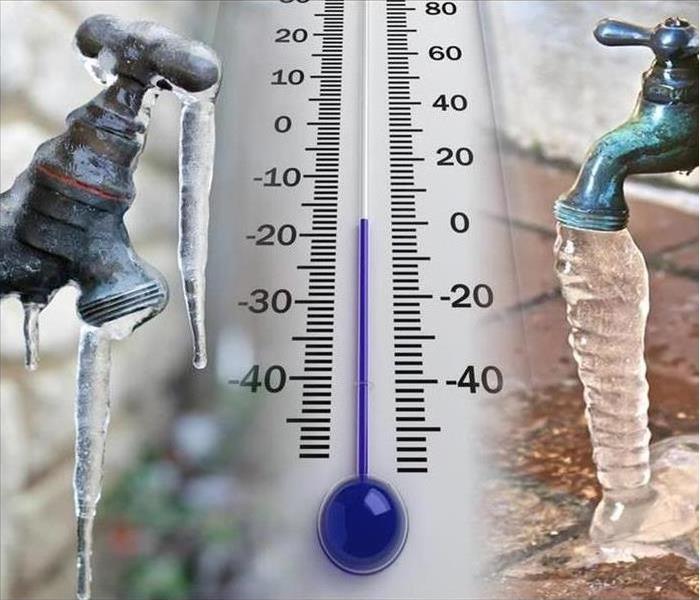How to Prepare for Winter Weather and Avoid Water Damage
1/23/2017 (Permalink)
As seasons change, so do property owners preparation checklists. With winter weather upon us, it is important for homeowners and property managers to do everything they can do to reduce risks of costly water damage caused by frozen pipes.
When water freezes, it expands. That’s why a can of soda explodes if it’s put into a freezer to chill quickly and then forgotten. When water freezes in a pipe, it expands the same way. If it expands enough, the pipe bursts and water escapes leaving serious damage as a result.
Pipes in attics, crawlspaces, and outside walls are all vulnerable to freezing, especially if there are cracks or openings that allow the cold, outside air to flow across the pipes. Holes in an outside wall where television, cable or telephone lines enter can provide access for cold air to reach pipes.
The Red Cross warns that pipe freezing is likely to occur after consecutive days and nights of freezing (32 degrees) or below conditions. Taking the following precautions ahead of time can help you prevent potential pipe catastrophes:
- Keep a slow trickle of water flowing through faucets, especially if the pipes for faucets run through unheated or uninsulated areas of your home. Allowing cold water to trickle from a faucet can alleviate pressure and prevent a rupture even if freezing occurs.
- If a vacant home, keep the temperature above 65 degrees.
- Cap outdoor water fixtures. By placing a cover on outdoor spigots and faucets, it reduces the possibility these fixtures build up with ice.
- Keep cabinet doors open during cold spells. This allows warm air to circulate around pipes.
If you have done nothing to prevent frozen pipes and you have water leaking or you have no water pressure, it likely means your pipes have burst. According to State Farm Insurance, this happens to more than 50 million families each year in the United States. If a pipe has even 1/8” crack, it can release 250 gallons of water a day.
You must act fast to prevent further, and more costly damage.
- This first step is to always shut down your property’s main water supply. (Depending on the amount of water and location, you may want to first turn off electricity.)
- If it’s heated water that’s coming from the broken pipe, you should also close the valve attached to your hot water heater.
- After you’ve shut down the water, call a plumber for help with repairing or replacing the burst pipe.
Make SERVPRO of Suffolk/Smithfield/Franklin your first call to help you and your local insurance agent assess the damage. We will work for you to restore your property and your life to make it Like It Never Happened®.





 24/7 Emergency Service
24/7 Emergency Service
